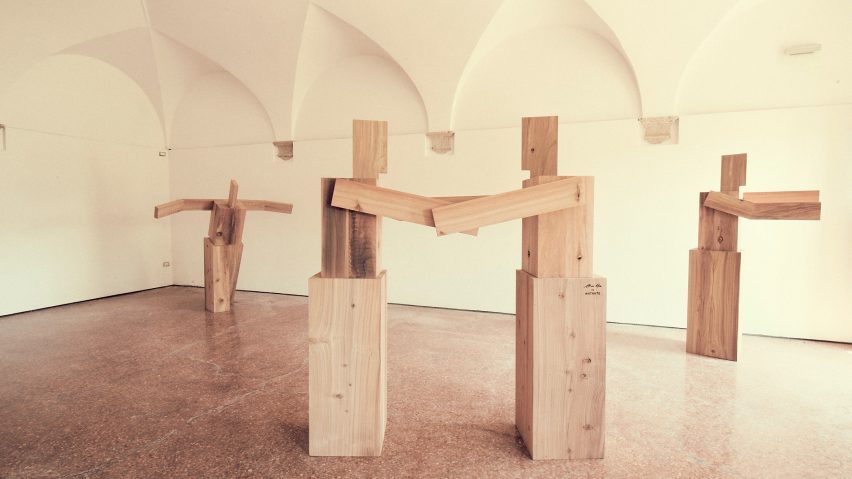
Álvaro Siza creates wooden figures for Holy See pavilion at Venice Architecture Biennale
Portuguese architect Álvaro Siza has designed a series of timber figures alongside a garden by Studio Albori for the Vatican City's pavilion at this year's Venice Architecture Biennale.
Named O Encontro, which translates as the encounter, the figures occupy a series of galleries at the Abbey of San Giorgio Maggiore adjacent to the Andrea Palladio-designed San Giorgio Maggiore church in Venice.
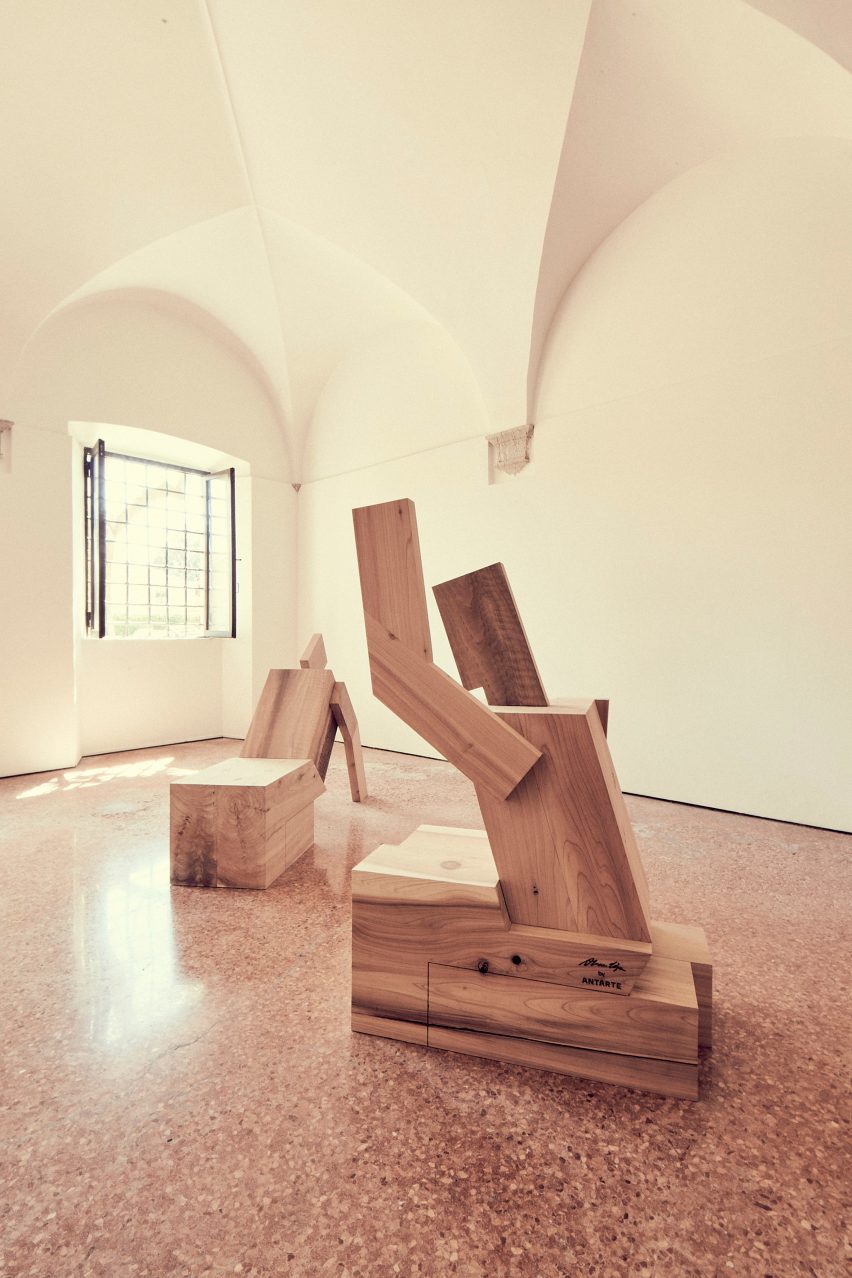
Commissioned by Cardinal José Tolentino de Mendonça, the figures are one of two distinct elements created as the Holy See pavilion at the architecture biennale.
Pritzker Architecture Prize-winner Siza arranged the figures in a series of poses in Benedictine monastery's gallery spaces that lead to an enclosed garden.
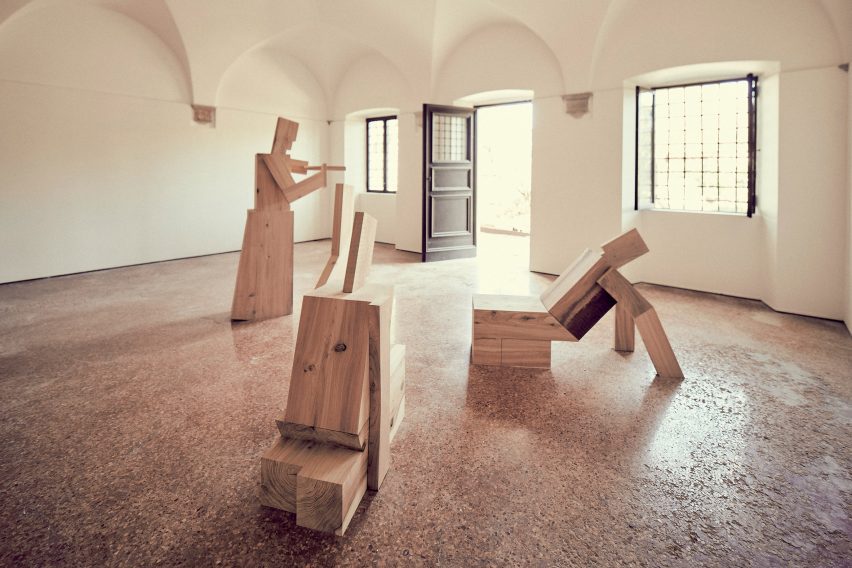
"They leave for Venice, and I imagine their performance," said Álvaro Siza. "They move anxiously, wave, raise their arms – schematic, almost rough figures, in contrast with the delicacy of the spaces."
"They invade the garden, going to meet the like that will arrive," he continued.
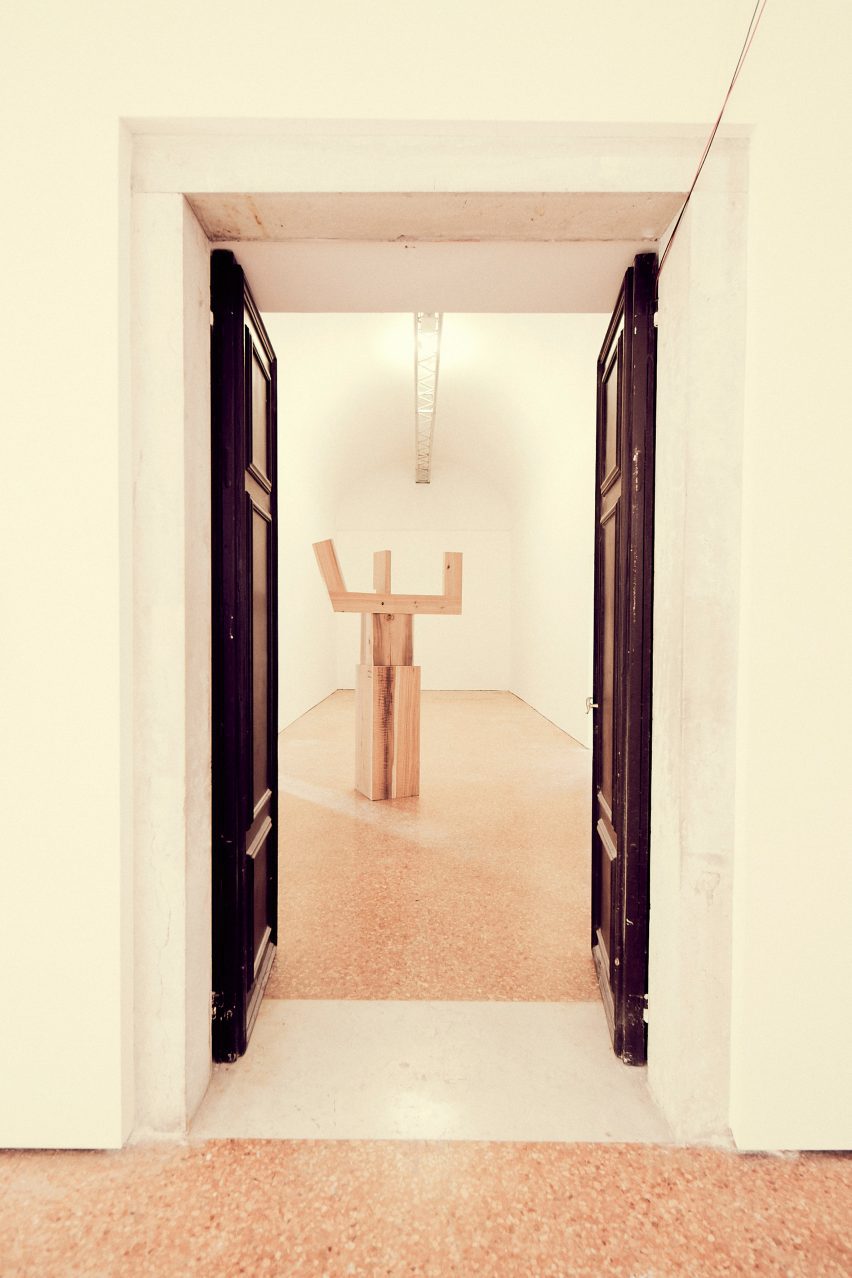
The figures, which are all made from timber, aim to invite people into the garden that has been redesigned by Milan-based Studio Albori.
According to curator Roberto Cremascoli, the garden and statues are both designed to encourage visitors "to take care of the planet as we care for ourselves and celebrate the culture of encounter".
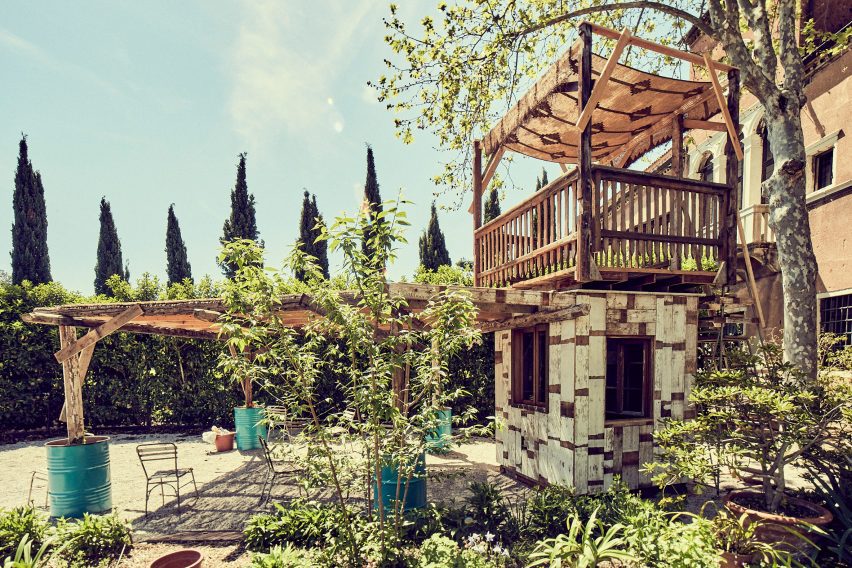
Studio Albori replanted the garden with local plants and added several bamboo and timber structures to provide shelter.
"[The aim was to] bring the monastic garden back to its original spirit, with local plants, attention to seasonality, and with the resources at hand," explained Cremascoli.
"Intended as a space which will be available to all, the new layout allows people to walk among the vegetable gardens, chicken coop, seed storage and resting areas, in a way that allows for reconnection and contemplation," he continued.
"This material and spiritual setting, built on small gestures dosed with care, brings us closer to the daily life of a Benedictine monastery opening the possibility for a renewed dialogue with those emblematic spaces of the architectural tradition."
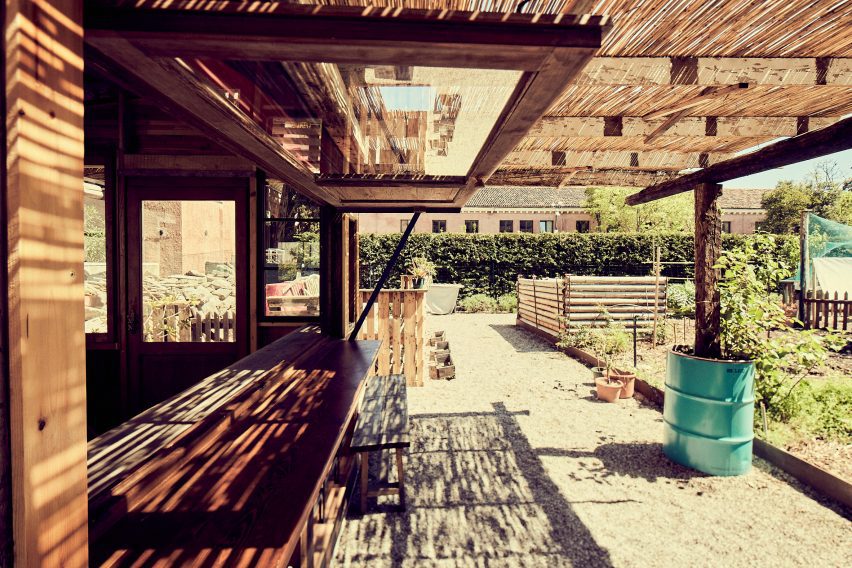
The garden is located near an area of parkland that contains 10 small chapel designed by leading architects including Norman Foster, Eduardo Souta de Moura, Sean Godsell and Terunobu Fujimoro, which were created in 2018 as the Vatican City's first Venice Architecture Biennale pavilion.
Elsewhere at the festival, Ukraine's pavilion aims to share the country's "new perception of safety" and the German pavilion offers a material bank for repair projects.